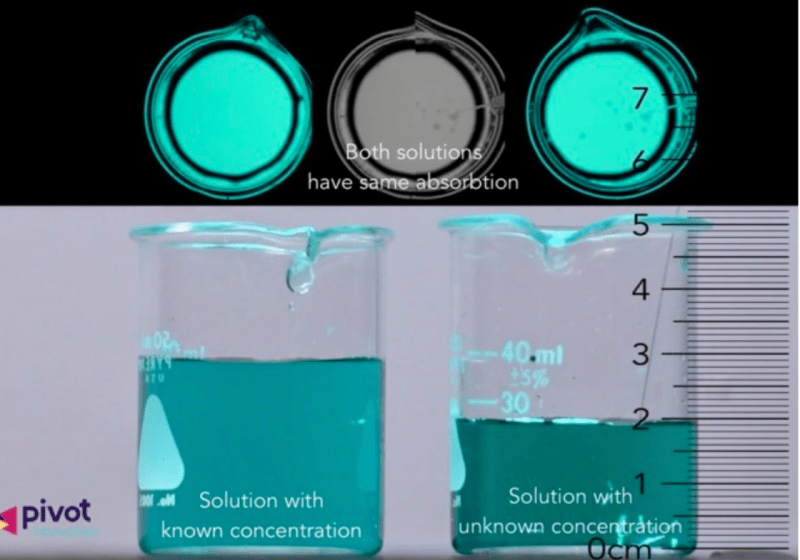Faced with the challenge of teaching lab classes online, science and engineering instructors are shipping lab kits and using virtual simulations in an effort to recreate the hands-on experience for students learning remotely.
While students have had mixed reactions about the efficacy of online learning — some appreciating the ease of access to online simulations and others missing the feeling of being in a physical lab — professors have taken the opportunity to focus on expanding accessibility in their fields.
Like art studio classes, lab classes typically require large amounts of equipment and laboratory spaces. Due to the pandemic, however, access to these resources has been heavily limited, even for students living on campus.
To help students set up a lab space at home or in their dorms, several departments packaged the materials in lab kits and sent them to students for free. CHEM 31M: “Chemical Principles: From Molecules to Solids” is one class like this: “The lab kits really have the majority of things you could think of, from chemicals and PH meter to test tubes and beakers,” said Sara Mixon ’24, who is taking CHEM 31M this quarter.
Before performing their first lab, Mixon and her classmates learned about home safety measures, such as proper air ventilation, safety cleanup of spills and broken glass, chemical safety and disposal.
Mixon said that the teaching assistants in CHEM 31M also gave students a virtual tour around the lab on campus, “show[ing] us everything in a real lab if we had been there, for future reference.”
For experiments that could not be replicated individually at home, students use interactive videos to conduct scientific investigations. PHYSICS 62: “Mechanics Laboratory” is using the Pivot Interactives platform and Tracker software to track the motions of objects and generate graphs.
Students said the significant differences between simulations and hands-on labs have made adapting to the online software difficult.
“The instructions can be confusing themselves, and I genuinely don’t think they add much to the learning experience for the most part,” Victoria Hsieh ’24, a CHEM 31A student, wrote to The Daily. “It was wonderful that they attempted to make the labs as accessible as possible, but I feel that the general confusion with trying to do these online really muddled the experience.”
Students also emphasized the importance of hands-on experiences, noting that the virtual format detracted from their learning in some ways.
“I’m learning at most 10% of what I could learn in [live] class,” said Tony Chang ’24, who is also taking CHEM 31A: “Chemical Principles I” and BIO 103: “Human and Planet Health.” “It’s just ineffective, in the sense that some of these science courses have to be hands-on — you have to learn by experiments.”
Other students said that, despite the challenges of online science, the ready-to-go simulation labs allow students more flexibility transitioning from lecture-based classes to lab-based classes.
“The in-person and hands-on experience is invaluable, as working together with lab partners behind a screen can prove to be a challenge,” said Lenae Joe ’24, who is also taking CHEM 31M and PHYSICS 22. “Despite these challenges, virtual labs can be less time-consuming and more accessible than a typical on-campus lab class.”
Although the teaching team tried to engage students through various Zoom features like breakout rooms, Mixon said she still found it difficult to collaborate with her classmates behind the screens because “it’s mostly us communicating through the TA.”
The experience of designing labs in an online format has motivated professors to reflect on the accessibility of labs for the wider student body, and even for their entire fields of study. Bioengineering and biology assistant professor Stanley Qi said that conducting engineering experiments often requires high-end labs and expensive equipment which are not accessible to most people.
“By using this online form, it promotes everyone to think about a new form which is more accessible to students no matter if they have this resource or money,” Qi said. “We can make this another opportunity for our future. Even after a pandemic, we can still use that to help other students in the world.”
As an attempt toward increasing lab accessibility, Qi and his colleagues adjusted their bioengineering class, BIOE 44: “Fundamentals for Engineering Biology Lab,” to focus more on “Do It Yourself Biology,” a discipline of synthetic biology that advocates for a more affordable and accessible “citizen science.”
Despite the efforts made to help students transition to virtual labs, professors also identified the lack of interaction as a major obstacle to teaching.
Bioengineering lecturer Paul Vorster, another professor of BIOE 44, said that it is easier to get feedback from students in an in-person setting, whether through direct communication or body language, which helps him adjust the pace of teaching the experiments.
“If a student doesn’t know how to do something, sometimes they’ll just pause, and you can tell that they maybe look a bit confused,” Vorster said. “Whereas in online courses you just don’t get that feedback.”
To overcome the online interaction barrier, Mixon said that students form study groups after class to work through lab problems together, while instructors design surveys to understand students’ expectations and make changes to accommodate students’ needs, according to Qi.
“Most instructors are learning and students are learning, and hopefully we’re in this mutual help, and we can make a much more effective learning,” Qi added.
A previous version of this article incorrectly referred to Victoria Hsieh as a PHYSICS 62 student. The Daily regrets this error.
Contact Jessica Zhu at jesszhu ‘at’ stanford.edu and Xinyi Wang at karenwxy ‘at’ stanford.edu.
